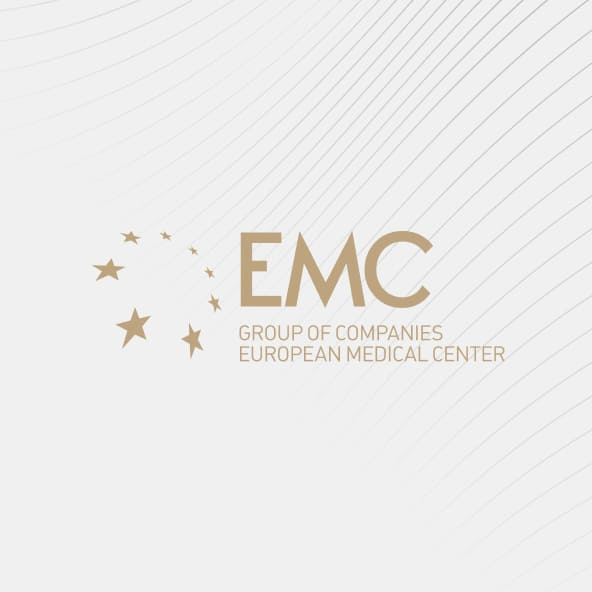Artificial insemination
Artificial insemination (AI) is one of the methods of assisted reproductive technologies that involves fertilizing an egg in a natural cycle using partner or donor sperm. At the EMC clinic, intrauterine insemination is performed by experienced specialists according to protocols adopted by professional organizations in the United States and Western Europe, which increases the chances of successful pregnancy.
Intrauterine insemination: general information
Intrauterine insemination is a method in which sperm is injected directly into a woman's uterus during ovulation. The purpose of the procedure is to inject processed sperm into the uterine cavity, washed from seminal plasma and enriched with a fraction of motile spermatozoa.
The AI method is as close as possible to natural conception, but it does not involve sexual contact between partners. Unlike IVF, in most cases, hormonal stimulation is not prescribed to a woman and egg puncture is not required. However, the possibilities of intrauterine insemination are limited — for example, the procedure will not be successful if the patency of the fallopian tubes is impaired, or significant abnormalities in the partner's spermogram are detected. Before the procedure, the sperm undergoes high-tech processing to reduce the number of defective spermatozoa. It is possible to use cryopreserved biomaterial, as well as donor sperm.
The EMC Clinic for Reproduction and Prenatal Medicine has its own cryobank for storing donor sperm, oocytes and embryos.
TYPES OF AI:
-
Insemination in the EC
In this case, the doctor monitors the growth of his own follicle, determines the best day for insemination and injects the processed sperm into the woman's uterine cavity. This method of overcoming infertility is indicated in the absence or extremely irregular sexual activity of partners, erectile dysfunction of the partner, with abnormalities in the development of the partner's genitals, due to which sperm entry into the genital tract of a woman is limited or impossible (for example, hypospadias), when using donor sperm in single women .
-
Insemination and induction of follicle(s) growth
In this program, the doctor prescribes the minimum doses of drugs to initiate the growth of one or two follicles, and then performs insemination on a specific day of the cycle. This method can be offered to couples for the same reasons, but when a woman also has problems with her own ovulation. According to some recommendations, stimulation with insemination can be offered to couples with infertility of unknown origin, but the method has limited effectiveness in this category of patients.
-
Impaired patency of the fallopian tubes
-
Older reproductive age
-
Reduced ovarian reserve
-
A woman has a history of 3 or more inseminations
-
General contraindications to pregnancy
-
undergo a full examination to rule out diseases of the reproductive system;
-
give up bad habits;
-
reduce weight if BMI is higher than normal;
-
lead a healthy lifestyle (proper nutrition, moderate physical activity);
-
strictly follow all the doctor's recommendations when preparing for the procedure (for women) and collecting biomaterial (for men);
- choose a good clinic, as the success of the procedure depends, among other things, on the quality of medical training and the effectiveness of the protocol.
Infertility is diagnosed if, during regular sexual activity without protection, pregnancy has not occurred for 12 months. However, with age, a woman's chances of natural conception decrease, so assisted reproductive technologies can be used in patients over 35 years old if conception does not occur within 6 months.
Contraindications
Artificial insemination is not performed in the following cases:
Preparation
At the first meeting with patients, the gynecologist-reproductologist conducts a detailed survey of the patient's life history, her surgical history, finds out the features of the menstrual cycle, analyzes all the results of tests, operations, etc. If additional examinations are necessary, additional tests or studies may be prescribed to clarify the genesis of infertility and develop a plan to overcome this condition .
In some cases, surgical treatment may be required, for example, if large fibroids, clinically significant endometriosis, tubo-ovarian formations, etc. are detected. In case of violation of the partner's spermogram or the presence of concomitant diseases, it may be necessary to consult a urologist.
When receiving the most complete information about the condition of patients, the doctor chooses the tactics of infertility treatment and determines the duration of the program.For each program (ovulation stimulation, insemination, IVF) there is a list of mandatory tests, which is regulated by the current legislation of the Russian Federation. Patients take these tests immediately before the program.
How is the procedure performed
AI in the EC
Visit No. 1: The patient comes for ultrasound control on an average of 8-10 days of MC (with a 28-day cycle). These days, the doctor is most likely to see the leading follicle, and will also be able to assess the quality of the endometrium. The date of insemination can be determined on this day, which usually happens 1-3 days after this visit.
Visit No. 2: Patient attendance at the AI. On this day, the partner donates sperm about 1-2 hours before the intended manipulation. The resulting ejaculate is specially processed in the laboratory to increase the concentration of high-quality sperm. If cryopreserved sperm is used, the material is thawed 1-1.5 hours before the AI.
The resulting biomaterial is inserted into the uterine cavity through the cervical canal using a special catheter under the control of an ultrasound sensor. The procedure is painless and takes only a few minutes. In some cases, in one cycle, the doctor may suggest re-administration of sperm the next day. After AI, the patient receives recommendations from the attending physician on her lifestyle, medication intake, and the date of HCG testing.
If pregnancy has not occurred, it is possible to repeat AI in the next two cycles.
AI and follicle growth induction.
During this program, follicle growth is additionally stimulated with drugs, so the algorithm of visits to the clinic is complemented by another meeting:
Visit No. 1: Attendance at the clinic on day 2-7 of the MC, ultrasound monitoring of the pelvic organs, prescribing drugs to stimulate follicle growth
Visit No. 2: Ultrasound monitor of follicle(s) growth. It is carried out approximately 5-6 days after the first meeting. Already at this meeting, the doctor, having measured the size of the follicle and endometrium, determines the date of the AI.
Visit number 3: Carrying out the insemination itself.
Frequently asked questions
What is the difference between IVF and insemination?
IVF requires special preparation of the egg: ovarian stimulation, puncture for egg collection, fertilization of the egg with sperm in the laboratory, and embryo insertion into the uterus. Intrauterine insemination is performed in a natural cycle or with stimulation, while the follicles remain in the woman's body, and the sperm is injected directly into the uterus. Thus, the procedure is more gentle, simple and affordable. However, the effectiveness of insemination is lower.
What is the probability of getting pregnant during insemination?
Research data show that artificial insemination as a method of infertility treatment is effective in 3 to 25% of cases (after one attempt). This gap is associated with many factors: the age of the woman, the patency of the fallopian tubes, the presence of concomitant pathology, the quality of the partner's sperm, and so on.
Women under 30 years of age with normal ovulation and patency of both fallopian tubes have a higher chance of pregnancy when using artificial insemination.
At the EMC Reproduction Clinic, we manage to achieve positive results in 25% of cases, provided that the AI is performed solely for medical reasons. During AI cycles, the probability of getting pregnant increases during the first three cycles, and then begins to decrease. That is why we almost never recommend using this method for a long time and, if you do not get pregnant, still switch to the IVF cycle.
How to increase the chances of success with insemination?
To increase the chances of conception with artificial insemination, it is recommended to:
How do you feel after insemination?
Small spotting and mild abdominal pain may occur within 1-3 days after the procedure. This is due to gynecological manipulations. Starting from day 6, if fertilization is successful, symptoms associated with the implantation of the fetal egg and the onset of pregnancy may appear: small discharge with an admixture of blood, slight pain in the pelvic area, nausea, weakness, breast swelling. Most women have no symptoms after manipulation.
Why didn't artificial insemination work?
Success is influenced by the age of the mother, the quality of eggs and sperm, the patency of the fallopian tubes, the presence of concomitant diseases and other infertility factors, and taking certain medications.
How long does intrauterine insemination last?
The procedure takes up to 20-30 minutes to complete.
The EMC Reproduction Center is attended by the best Russian doctors who use medical protocols recognized and recommended by relevant international organizations. You can check the prices for the procedures, as well as ask any other questions about the medical services of our clinic online or by phone +7 495 933-66-55.
Doctors
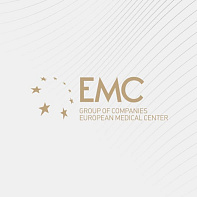
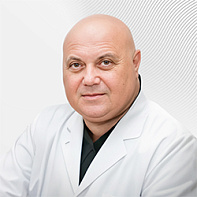
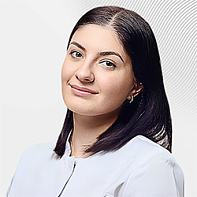
.jpg)
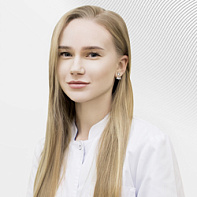
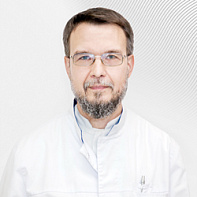
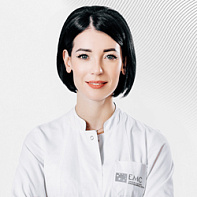
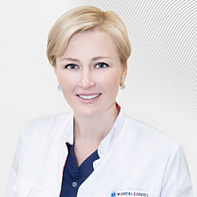
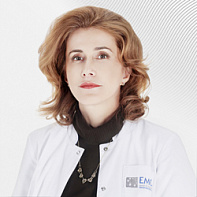
.jpg)
.jpg)
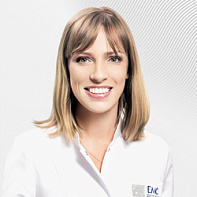
- Head of the Surgical Department of the Meir Medical Center, Kfar Saba
